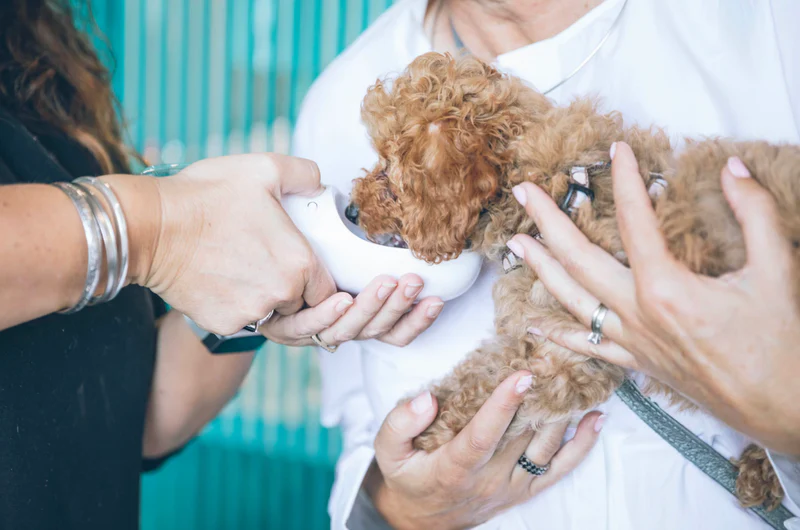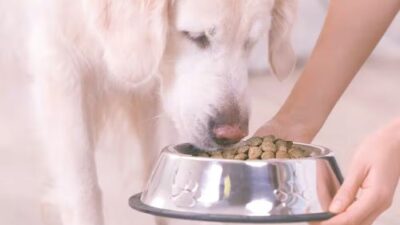Meta Title: How to Take Care of Your Dog | Ultimate Beginner’s Guide 2025
Meta Description: Discover essential dog care tips including puppy care, grooming, nutrition, exercise, and veterinary advice to keep your pet healthy and happy in 2025.
Introduction
Welcoming a dog into your home is an exciting and fulfilling journey, but it also means taking on important responsibilities. For new pet owners or those bringing a puppy into the family, caring for your dog might seem challenging at first. Understanding your pet’s unique needs—from their diet and exercise to grooming and training—is key to helping them thrive and stay happy.
This beginner-friendly guide covers essential aspects like puppy care, proper feeding, grooming tips, and effective exercise routines. With practical advice and real-life examples, you’ll be well-equipped to provide the best care for your canine companion throughout 2025 and beyond.

Maintaining good dog hygiene is essential for your pet’s overall health and comfort. Regular brushing, bathing with dog-friendly shampoo, and cleaning sensitive areas like ears and teeth help prevent infections and skin issues. Keeping your dog’s coat clean and nails trimmed also supports their wellbeing and keeps them feeling their best.
Regular dog walking is vital for your pet’s physical health and mental stimulation. Daily walks provide exercise, help maintain a healthy weight, and give your dog the opportunity to explore and socialize. Establishing a consistent walking routine also strengthens the bond between you and your dog, making it an enjoyable experience for both.
Keeping your dog vaccinations up to date is crucial for preventing serious and potentially life-threatening diseases. Core vaccines protect against illnesses like rabies, distemper, and parvovirus, while non-core vaccines may be recommended based on your dog’s lifestyle and environment. Regular veterinary visits ensure your dog receives the right vaccines at the proper times to maintain their health and safety.
1. Understanding Dog Care Basics
Taking care of a dog means addressing their physical, emotional, and mental needs. Good dog care includes:
- Providing a nutritious diet
- Regular exercise and playtime
- Proper grooming and hygiene
- Routine veterinary check-ups
- Safe and stimulating environment
- Training and socialization
Each dog is unique, but these pillars create the foundation for a happy, healthy pet.
2. Puppy Care: The First Steps
Starting your dog’s life on the right foot is crucial.
H3: Bringing Your Puppy Home
- Prepare a safe, quiet space with a bed, toys, and food/water bowls.
- Introduce gradually to family members and other pets.
- Keep your puppy on a consistent feeding and potty schedule.
H3: Puppy Nutrition
Puppies have special nutritional needs for growth. Choose high-quality puppy food rich in protein and essential nutrients.
H3: Vaccinations and Vet Visits
Puppies need vaccinations to protect against diseases like parvovirus and distemper. Schedule vet visits early for vaccinations, deworming, and health checks.
H3: Socialization and Training
Expose your puppy to new people, environments, and sounds between 3 and 14 weeks for proper dog socialization. Start basic training commands using positive reinforcement.
3. Nutrition and Feeding Dogs
Proper dog nutrition is the cornerstone of good health.
H3: Choosing the Right Food
- Opt for dog food formulated for your dog’s age, size, and activity level.
- Avoid harmful human foods like chocolate, grapes, and onions.
H3: Feeding Schedule
- Puppies: 3-4 small meals a day.
- Adult dogs: 2 meals a day.
H3: Supplements and Treats
Use treats sparingly, ideally healthy ones. Consult your vet before adding supplements.

4. Dog Grooming Essentials
Dog grooming keeps your pet clean and comfortable.
H3: Bathing and Brushing
- Bathe dogs every 4-6 weeks or as needed with dog-specific shampoo.
- Brush regularly based on coat type—daily for long-haired breeds, weekly for short-haired.
H3: Nail Care
Trim nails every 3-4 weeks to prevent discomfort and injuries.
H3: Ear and Dental Hygiene
- Clean ears weekly to prevent infections.
- Brush teeth daily or provide dental chews.
5. Exercise and Mental Stimulation
Regular dog exercise prevents obesity and behavioral problems.
H3: Physical Activity
- Daily walks or playtime based on breed energy levels.
- Incorporate fetch, agility training, or swimming.
H3: Mental Stimulation
- Use puzzle toys, obedience training, and scent games to keep your dog mentally sharp.
6. Veterinary Tips and Pet Health
Routine vet care is essential for pet health.
H3: Regular Check-ups
Annual or biannual vet visits help catch health issues early.
H3: Vaccinations and Preventatives
- Keep vaccinations up to date.
- Use flea, tick, and heartworm preventatives year-round.
H3: Recognizing Signs of Illness
Watch for lethargy, appetite loss, vomiting, or unusual behavior and consult your vet immediately.
7. Dog Behavior and Training
Understanding dog behavior improves your relationship.
H3: Basic Training Commands
Teach sit, stay, come, and heel using positive reinforcement.
H3: Addressing Behavioral Issues
Common problems like barking, chewing, or separation anxiety often need professional guidance.
8. Ensuring Pet Safety and Socialization
H3: Home Safety Tips
- Secure hazardous substances and electrical cords.
- Use collars with ID tags and microchipping for lost pets.
H3: Socializing Your Dog
Early exposure to other dogs and people reduces aggression and fearfulness.
9. Special Considerations for Different Dog Breeds
Different breeds require tailored care.
| Breed Type | Grooming Needs | Exercise Level | Common Health Issues |
|---|---|---|---|
| Small Breeds | Moderate | Low to Moderate | Dental problems, obesity |
| Large Breeds | Low to Moderate | High | Joint issues, hip dysplasia |
| Long-Haired | High | Moderate | Matting, skin infections |
| Short-Haired | Low | High | Skin allergies |
Research your dog’s breed to provide specific care.
- For detailed guidelines on puppy vaccinations and health, visit the American Veterinary Medical Association (AVMA).
- Learn more about proper dog nutrition from the American Society for the Prevention of Cruelty to Animals (ASPCA).
- To understand common dog behavior and effective training techniques, check out the Humane Society’s dog training tips.
- For expert advice on grooming and dental care, the American Kennel Club (AKC) offers great resources.

10. Frequently Asked Questions (FAQ)
Q1: How often should I groom my dog?
The frequency depends on the breed and coat type. Long-haired dogs may need daily brushing, while short-haired breeds can be brushed weekly. Bathing every 4 to 6 weeks is typically sufficient unless your dog gets dirty or has a skin condition.
Q2: What is the best way to train a puppy?
Positive reinforcement is the most effective method. Reward good behavior with treats, praise, or play. Consistency, patience, and short training sessions are key to successful puppy training.
Q3: How much exercise does my dog need?
Exercise requirements vary by breed, age, and health. Active breeds need at least an hour of exercise daily, while less active breeds may require less. Mental stimulation is equally important.
Q4: When should I take my puppy to the vet?
Schedule the first vet visit within a few days of bringing your puppy home. Vaccinations typically start at 6-8 weeks, with follow-ups every few weeks until 16 weeks. Regular check-ups are essential throughout life.
Q5: How can I keep my dog healthy in 2025?
In addition to traditional care, use technology like smart collars, telemedicine vet consultations, and advanced nutrition plans to stay ahead in pet health.
11. Conclusion
Taking care of your dog is a rewarding journey that offers companionship and joy for years to come. By focusing on the key aspects of caring for your pet—such as proper feeding, regular exercise, grooming, and timely veterinary care—you can help ensure your dog remains healthy, happy, and well-behaved.
If you’re excited to provide the best possible life for your furry friend, feel free to share your tips or questions in the comments below. Don’t forget to subscribe to our newsletter for more expert advice on pet care and wellness!



